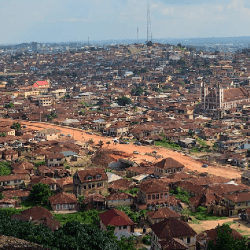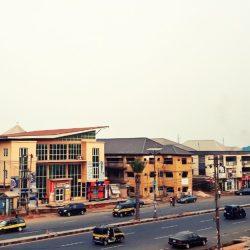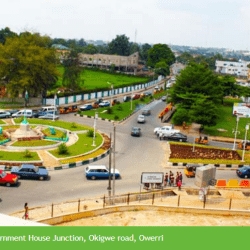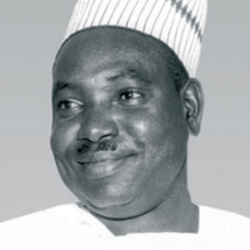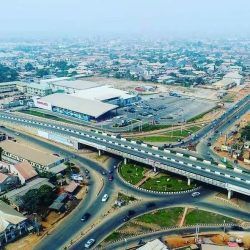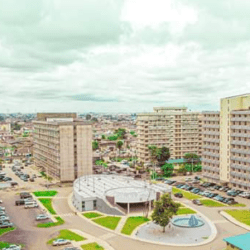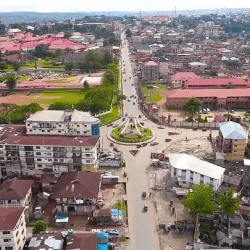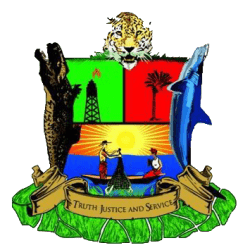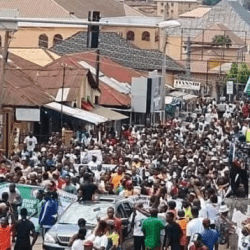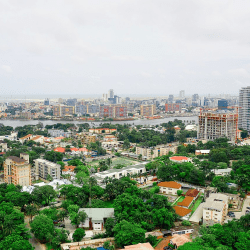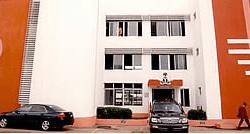The Imo State House of Assembly came up as a result of the creation of Imo State early in 1976 by the General Murtala Mohammed administration. It did not take off until the Military handover in October, 1976 to a democratically elected government.

Speaker, Imo State House of Assembly as of 2008
The history of the Assembly dates back to October, 1979 in the old Imo State comprising the present Imo, Abia and Ebonyi States, during the second Republic which lasted from 1st October 1979 to 30th December, 1983. On October 2nd, the first Imo State Legislature was inaugurated by the State Governor, His Excellency, Chief Samuel O. Mbakwe.
The Imo State House of Assembly operated from a temporary site at the Ama JK within the premises of the Owerri Municipal Council, in a building which later housed the Armed Robbery and firearms Tribunal.
At the inauguration of the House, RT. Hon. Barr. Gideon Atuloma emerged the speaker of the Legislature; while Hon. Okechukwu Okaibedi was elected his Deputy. At the expiration of the first Legislative by the end of September 1983, the Second House took off early October 1983, with Hon. Barr. S.N. Onyeama as Speaker; while Hon. Barr. Anomnachi became his Deputy. The tenure of this legislature was very short as the democratically elected governor was overthrown on 30th December, 1983 by General Muhammadu Buhari.
On December 23, 1991, its permanent site located off Port-Harcourt Road, Owerri, was commissioned by the then Military President, General Ibrahim Badamasi Babangida in preparation for the third Republic.
The Imo Legislature stayed in Limbo until January 3rd 1992 when in line with the transition programme of General Ibrahim Babangida, it was inaugurated. Rt. Hon. Chief Maxwell Duru was elected Speaker while Hon. Okechukwu Dike was elected Deputy Speaker. Hon. Chief Jones Uzoka was appointed Majority Leader, Hon. Nkem Nwankwo Jr.-Majority Chief Whip, Hon. Barr. C.O.C. Mgbaahuru was appointed Minority Leader while Hon. Barr. Soronnadi Njoku was also appointed Minority Whip.
On November 17th 1993 the legislature was sacked by General Sani Abacha who also dismantled all the democratic structures established during Babangida’s transitioinal programme.
Following the return to democracy on Saturday 29th May 1999, the Imo State House of Assembly was inaugurated on June 2nd 1999. On 6th June, 1999 the Principal Officers of the 27 member house were elected /appointed. RT. Hon. Barr. Noel Agwuocha Chukwukadibia, who represented Ahiazu Mbaise Constituency, was elected Speaker while Hon. Jonathan Ogu Onyeama, representing Nkwerre constituency was elected Deputy Speaker. Hon. Standford Onyirimba, representing Ehime Mbano was appointed the Majority Leader by the party. Hon. Barr. Marcel Onuoha representing Isu was appointed Minority Leader. Hon. Steve Orji, representing Orlu was appointed Majority Chief Whip while Hon. Dr. Sam Emeka Ukaegbu, representing Ikeduru was appointed Minority Whip. Other officers of the House were Hon. Ernest Ibejiako representing Owerri Municipal was Deputy Majority Leader; Hon. Dr. Ezeadi O. Ezeadi representing Okigwe was deputy Majority Whip. Hon. Gabriel Sonny Amadi representing Owerri West was Deputy Minority Leader and Hon. Ernest Emeghebo representing Onuimo was Deputy Minority Whip.
In September 2001, there was a change in the leadership of the party during which Rt. Hon. Barr. Nnaemeka Maduagwu representing Owerri North was appointed Speaker and Hon. Oliver Akpaka representing Nwangele became Deputy Speaker. In August 2002, another change in leadership took place in which Rt. Hon. Barr. Godfrey Dikeocha representing Aboh Mbaise was elected Speaker. There were no further changes until the winding up of the 4th House, 1st Assembly on 2nd June 2003. The present legislators of the Fourth House, Second Assembly of the Imo State House of Assembly were inaugurated and sworn-in on 4th June 2003. Rt. Hon. Barr. Kelechi Kennedy Nwagwu, representing Ikeduru was elected Speaker, Hon. Chief Chuma Nnaji, representing Njaba was elected Deputy Speaker. Hon. Chief Stanford Onyirimba representing Ehime Mbano was appointed Majority Leader, Hon. Dr. Peter Ukaigwe representing Orlu, Majority Chief Whip. Hon. Alex Emeziem representing Aboh Mbaise Deputy Majority Leader while Hon. Ngozi Ogbu representing Okigwe became the Deputy Chief Whip, however in November 2003 Hon. Barr. Dan. Nwagwu representing Obowo became the Majority Leader following the resignation of Hon. Chief Stanford Onyirimba as the Majority Leader.
Imo State
Imo is a state in Nigeria’s South-East geopolitical zone. It’s capital and largest city is Owerri.
The state is is bordered by Abia State on the East, River Niger and Delta State to the West, Anambra State on the North, and Rivers State to the South.
Imo state comprises mostly Igbo people of Nri and Aro Kingdoms.
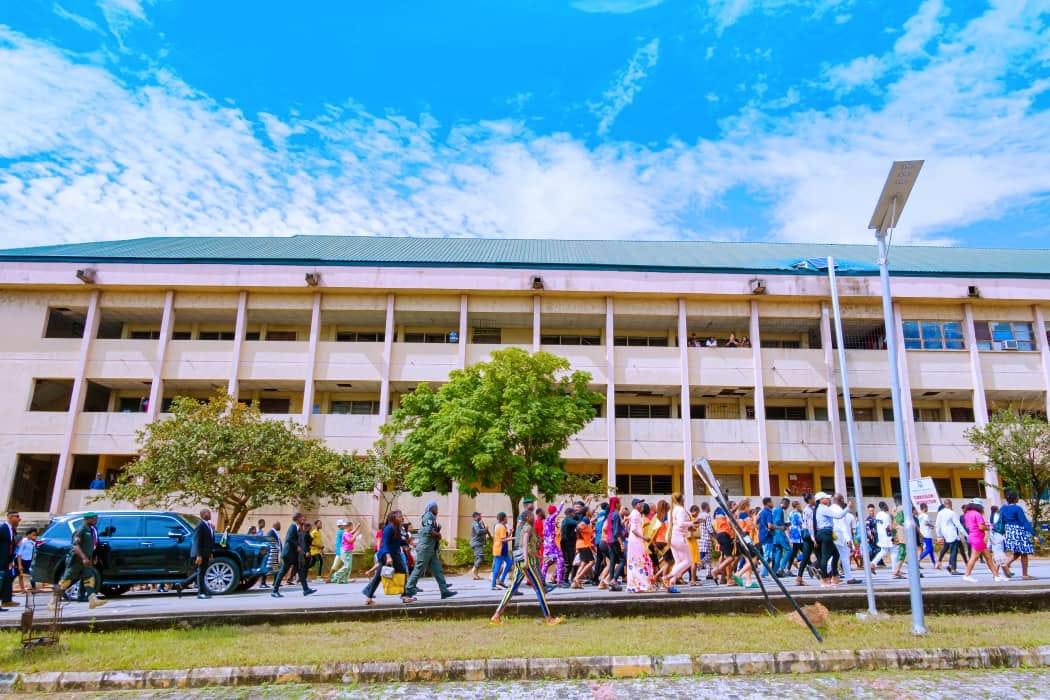
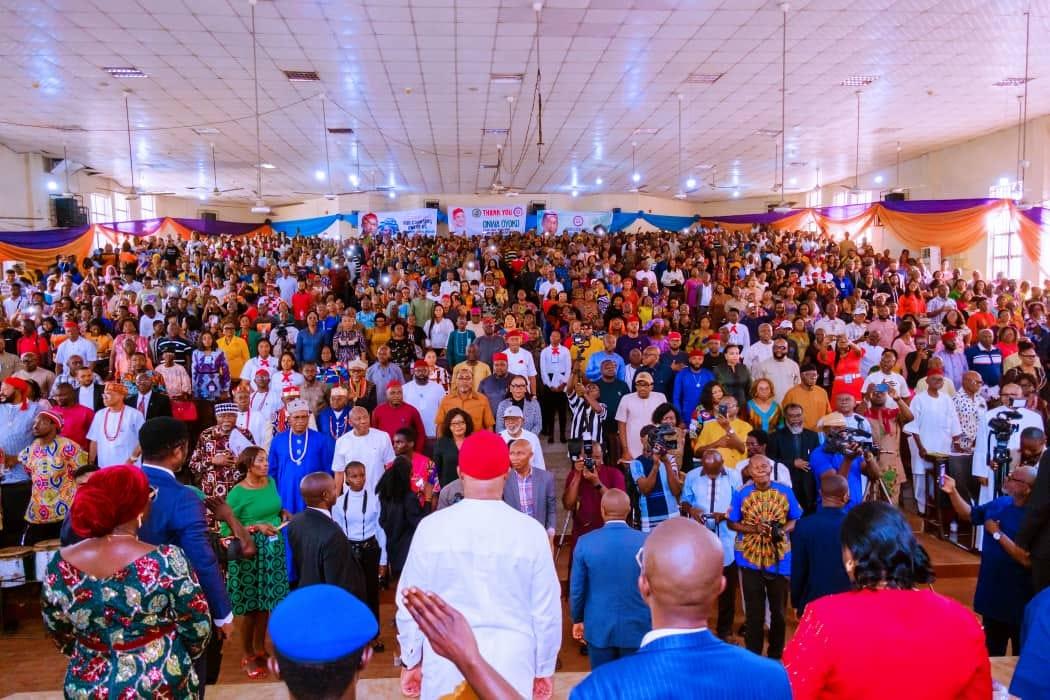

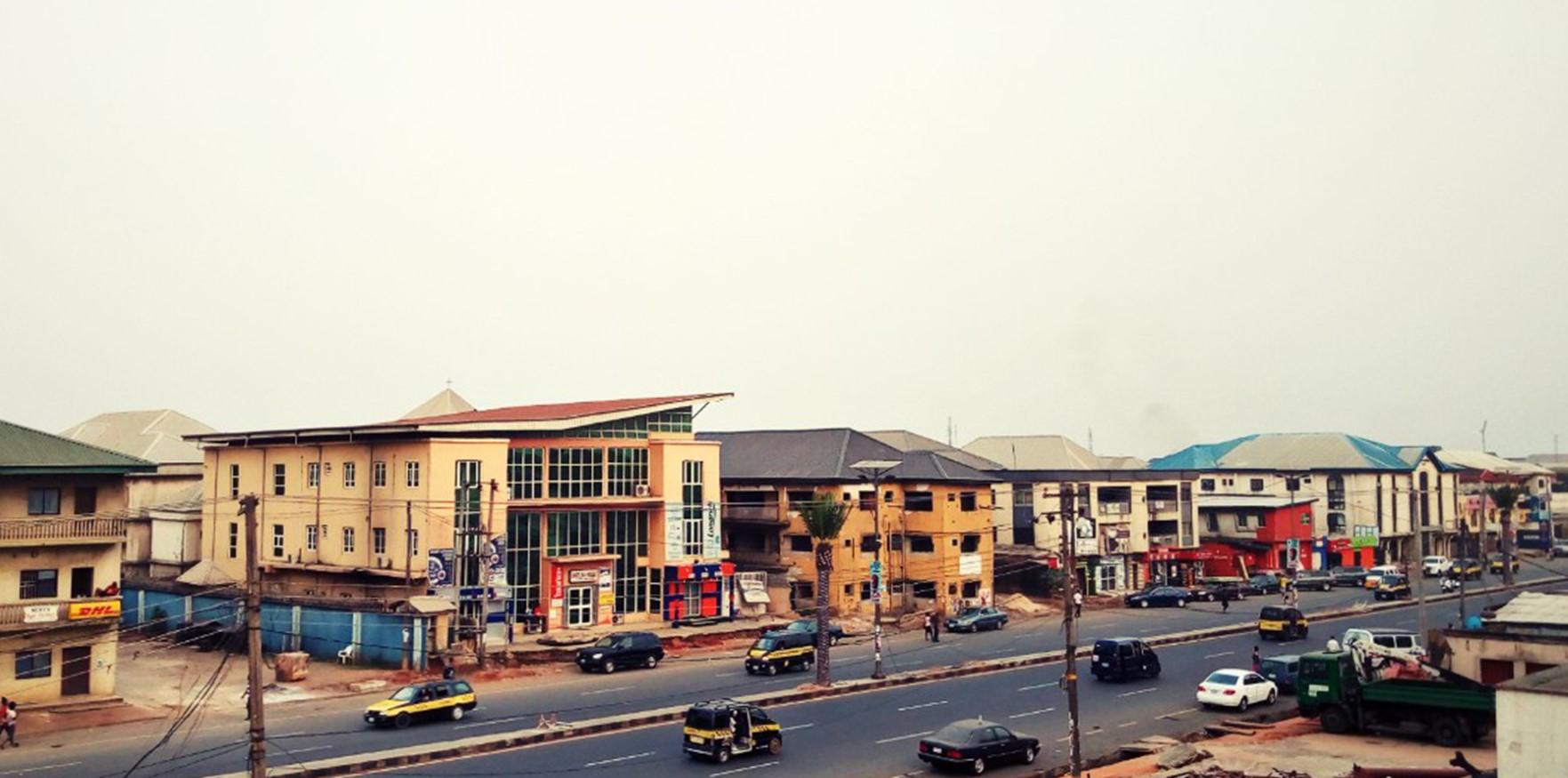

Name
Imo takes its name from the Imo River which flows along the state’s eastern border.
Nickname
The state’s nickname is: Eastern Heartland
Created
3 February 1976
Capital
Owerri
Population (2017 estimates)
4,927,563
Land area
5,530 km2 (2,140 sq mi)
Geographic coordinates
The state lies within latitudes 4°45’N and 7°15’N, and longitude 6°50’E and 7°25’E.
The State economy is dependent largely on agriculture, especially the production of palm oil.
Another key industry is the extraction of crude oil and natural gas, especially in Imo’s north and west.
The State has been beset by violence at various points throughout its history, most notably the anti-cult 1996 Otokoto Riots and the ongoing separatist violence from the Eastern Security Network along with other opportunistic nativist gunmen.
Despite unrest, with its fast growing population and industrialization, Imo State has one of the highest Human Development Index in Nigeria.
Imo State is administratively divided into 27 LGAs (Local Government Areas) namely:
- Aboh Mbaise
- Ahiazu Mbaise
- Ehime Mbano
- Ezinihitte Mbaise
- Ideato North
- Ideato South
- Ihitte/Uboma
- Ikeduru
- Isiala Mbano
- Isu
- Mbaitoli
- Ngor Okpala
- Njaba
- Nkwerre
- Nwangele
- Obowo
- Oguta
- Ohaji/Egbema
- Okigwe
- Onuimo
- Orlu
- Orsu
- Oru East
- Oru West
- Owerri Municipal
- Owerri North
- Owerri West

Aboh Mbaise Local Government Area in Imo State

Oru West L.G.A. Imo State

Orlu Local Government Area, Imo State

Okigwe Local Government Area, Imo State
In the pre-colonial period, what is now Imo State was a part of medieval Kingdom of Nri and the later Aro Confederacy before the latter was defeated in the early 1900s by British troops in the Anglo-Aro War. After the war, the British incorporated the area into the Southern Nigeria Protectorate which later merged into British Nigeria in 1914; after the merger, Imo became a centre of anti-colonial resistance during the Women’s War.
After independence in 1960, the area of the present-day Imo was a part of the post-independence Eastern Region until 1967 when the region was split and the area became part of the East Central State. Less than two months afterwards, the former Eastern Region attempted to secede in the three-year long Nigerian Civil War with Imo as a part of the secessionist, Igbo nationalist state of Biafra.
The area was hard fought over throughout the war with Owerri and its surrounding area exchanging hands twice before Owerri was named the Biafran capital in 1969.
The present-day Imo State was captured by federal forces in early 1970 with Operation Tail-Wind taking the city and ending the war.
At the war’s end and the reunification of Nigeria, the East Central State was reformed until 1976 when Imo State was formed.
15 years after, Imo State was divided with eastern Imo being broken off to form the new Abia State.

